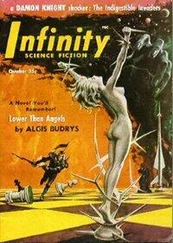Daniel Polansky - Low Town
Здесь есть возможность читать онлайн «Daniel Polansky - Low Town» весь текст электронной книги совершенно бесплатно (целиком полную версию без сокращений). В некоторых случаях можно слушать аудио, скачать через торрент в формате fb2 и присутствует краткое содержание. Жанр: Фэнтези, на английском языке. Описание произведения, (предисловие) а так же отзывы посетителей доступны на портале библиотеки ЛибКат.
- Название:Low Town
- Автор:
- Жанр:
- Год:неизвестен
- ISBN:нет данных
- Рейтинг книги:3 / 5. Голосов: 1
-
Избранное:Добавить в избранное
- Отзывы:
-
Ваша оценка:
- 60
- 1
- 2
- 3
- 4
- 5
Low Town: краткое содержание, описание и аннотация
Предлагаем к чтению аннотацию, описание, краткое содержание или предисловие (зависит от того, что написал сам автор книги «Low Town»). Если вы не нашли необходимую информацию о книге — напишите в комментариях, мы постараемся отыскать её.
Low Town — читать онлайн бесплатно полную книгу (весь текст) целиком
Ниже представлен текст книги, разбитый по страницам. Система сохранения места последней прочитанной страницы, позволяет с удобством читать онлайн бесплатно книгу «Low Town», без необходимости каждый раз заново искать на чём Вы остановились. Поставьте закладку, и сможете в любой момент перейти на страницу, на которой закончили чтение.
Интервал:
Закладка:
I rolled a smoke. Yancey hated to be interrupted in the middle of a performance, regardless of the setting. I once had to pull him off a courtier who made the mistake of laughing during his set. He had that unpredictable temper common to small men, the kind of rage that flares up before fading away just as quickly.
After a moment he finished his verse, and the tiny audience responded with muted applause. He laughed off their lack of enthusiasm, then looked up at me. “If it ain’t the Warden himself-finally managed a visit to your friend Yancey, I see.” His voice was thick and mellifluous.
“I got caught up in something.”
“I heard.” He shook his head regretfully. “Bad business. You going to the funeral?”
“No.”
“Well I am, so help me pack this up.” He began breaking down his set, wrapping each of the tiny hide drums in a collection of cotton sacks. I took the smallest of his pieces and did the same, slipping in his fistful of product as I did so. As a rule, Yancey was apt to injure any man foolish enough to touch his instruments, but he knew what I was up to and let it pass without comment. “The noble folk were disappointed you didn’t show last night.”
“And their sorrow weighs heavy on my soul.”
“I’m sure you lost sleep. You want to make up for it, you can come by the Duke of Illador’s estate Tuesday evening round ten.”
“You know how important the opinion of the peerage is to me. I suppose you’ll be expecting your usual cut?”
“Unless you feel like upping it.”
I did not. We continued in silence until the onlookers were out of earshot. “They say you found her,” Yancey said.
“They say things.”
“You steady on it?”
“As a top.”
He nodded sympathetically. “Bad business.” He finished packing up his set in a thick canvas bag, then slung it over his shoulder. “We’ll talk more later. I want to get a decent spot in the square.” He bumped my fist and walked off. “Stay loose.”
The docks were virtually deserted, the usual mass of workers, merchants, and customers long departed for the funeral, like Yancey happy to set aside a few hours of work to take part in a spectacle of public mourning. In their absence a dull quiet had settled over the area, a distinct contrast to the usual bustle of commerce. Making certain no one was watching I reached into my satchel for a hit of breath. My headache eased and the pain in my ankle receded. I watched the gray sky reflect off the water, thinking back to the day I had stood on the docks with five thousand other youths, preparing to board a troop ship to Gallia. My uniform had looked very fine, I’d thought, and my steel helm had glittered in the sun.
I contemplated lighting a joint of dreamvine but decided against it. It’s never a good idea to get faded in a maudlin mood-the vine tends to heighten your anxieties instead of blunting them. Solitude was proving an ill fit, and my feet found themselves shuffling north toward the church. It seemed I was attending the funeral after all.
By the time I got there the service had started and the Square of Benevolence was packed so tight you could barely see the dais. I skirted the crowd and sneaked into an alleyway off the main plaza, taking a seat on a stack of packing crates. It was too far back to hear what the high priest of Prachetas was saying, but I was confident it was very pretty-you don’t get to a point in life where people put gold on your outerwear unless you can say very pretty things at opportune moments. And anyway the wind had picked up, so most of the crowd couldn’t hear the speech either. At first they pushed closer, straining their ears to make him out. When that didn’t work, they got anxious, children pulling at their parents, day laborers shuffling their feet to keep warm.
Sitting on the stage, a respectful ten paces behind the priest, was the girl’s mother, recognizable even at this distance by the look on her face. It was one I had seen during the war on the faces of boys who had lost limbs, the look of someone who suffered a wound that should have been mortal but wasn’t. It tends to settle like wet plaster, grafting itself permanently to the skin. I suspected this was a mask the poor woman wouldn’t ever be able to shed, unless the torment became too much and she put steel to her wrist some cold night.
The priest reached a crescendo, or at least I thought he had. I still couldn’t hear anything, but his grandiloquent gestures and the mumbled beatitudes from the crowd seemed to indicate some sort of a climax. I tried to light a cigarette but the wind kept taking my flame, and I exhausted half a dozen matches before giving up. It was that kind of afternoon.
Then it was over, the oration completed and the invocations offered. The priest held the gilded icon of Prachetas aloft and descended from the dais, the pallbearers following behind with the coffin. Some of the crowd left with the procession. Most did not. It was getting cold after all, and the cemetery was a long walk.
I waited for the crowd to filter out from the square, then pushed myself up from my seat. At some point during the speech I hadn’t heard I’d decided to violate my self-imposed exile and return to the Aerie to speak with the Blue Crane.
Fucking funerals. Fucking mother. Fucking kid.
The Aerie reigns above Low Town like Sakra the Firstborn over Chinvat. A perfectly straight pillar, dark blue against the gray of the tenements and warehouses, stretching up endlessly. With the exception of the Royal Palace, with its crystalline fortifications and wide thoroughfares, it is the single most extraordinary building in the city. For near on thirty years it has subjugated the skyline, offering glorious contrast to the surrounding slums. It was a comfort, as a youth, to have visible evidence that the remainder of what you saw was not everything there was to see-that some portion of existence prevailed unpolluted by stench and piss.
The hope had proved false, of course, but that was my fault and no one else’s. It had been a long time since I’d seen the tower as anything but a reminder of squandered promise and the foolish hopes of a foolish boy.
They had leveled an entire city block to make room for the Square of Exultation, as the courtyard surrounding the Aerie was called, but no one had minded. This was in the dark times after the great plague, when the population of Low Town had shrunk to a fraction of what it was in years prior. In place of the tenements was built a maze of white stone enclosing the tower itself, intricately complex but barely waist high, allowing anyone willing to look foolish to hop over the walls. As a child I had spent countless hours here playing rat-in-a-hole or bowley pegs, stalking through the rows of granite or running tiptoe along the fortifications.
The square was likely the only portion of Low Town that the populace had not actively worked to dilapidate. No doubt the Crane’s reputation as being among the most skilled practitioners of magic in the nation had some part in cutting down on vandalism, but the truth was that, almost to a man, the people of Low Town idolized their patron and would accept no desecration of his home. To speak ill of the Crane was to call for a beating in any tavern between the docks and the canal, and a shiv to the gut in some of the harder ones. He was our most beloved figure, more highly esteemed than the Queen and the Patriarch combined, his charity funding a half-dozen orphanages and his alms joyfully received by a grateful public.
I stood in front of the house of my oldest friend and lit a cigarette, the wind having died down enough to allow me my petty pleasures. There were very good reasons why I hadn’t visited my mentor in five years, and I blew tobacco smoke in the chilly air and piled one atop another till they loomed over the whim that had carried me this far. I could still call an end to this idiocy, return to the Earl, light some dreamvine, and sleep until tomorrow. The mental impression of soft sheets and colored smoke faded as I stepped through the first archway, my feet threading their way forward against my better instincts, instincts I seemed to be ignoring a lot lately.
Читать дальшеИнтервал:
Закладка:
Похожие книги на «Low Town»
Представляем Вашему вниманию похожие книги на «Low Town» списком для выбора. Мы отобрали схожую по названию и смыслу литературу в надежде предоставить читателям больше вариантов отыскать новые, интересные, ещё непрочитанные произведения.
Обсуждение, отзывы о книге «Low Town» и просто собственные мнения читателей. Оставьте ваши комментарии, напишите, что Вы думаете о произведении, его смысле или главных героях. Укажите что конкретно понравилось, а что нет, и почему Вы так считаете.











